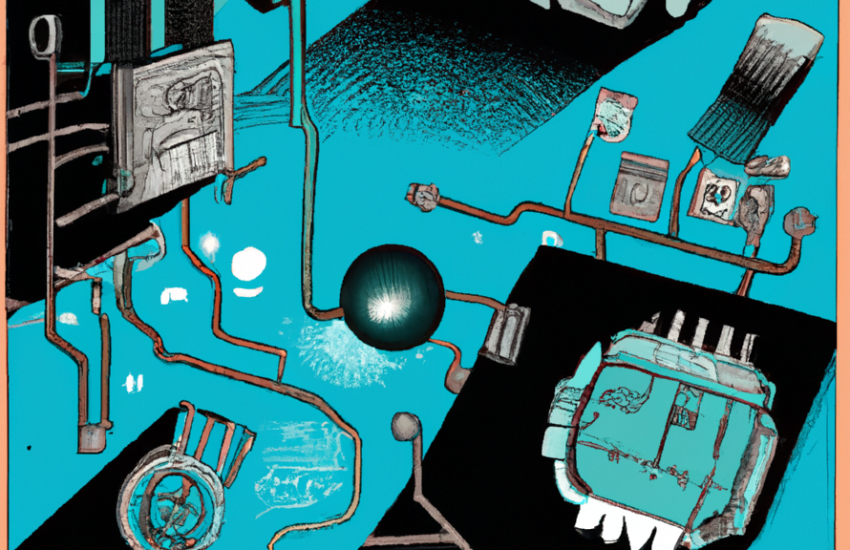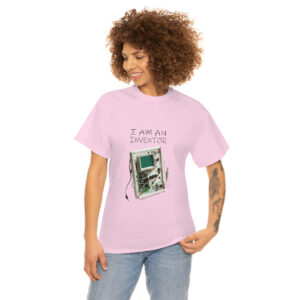THE FUTURE OF ELECTRONICS: HOW SENSORS ARE REVOLUTIONIZING THE INDUSTRY
The future of electronics is rapidly evolving, and sensors are at the forefront of this revolution. These tiny devices are transforming the way we interact with technology, from wearable fitness trackers to smart home systems. Sensors are becoming increasingly sophisticated, with the ability to detect everything from temperature and humidity to motion and sound. As a result, they are opening up new possibilities for invention, product design, and innovation. In this blog post, we will explore how sensors are revolutionizing the electronics industry and what this means for the future of invention and product design.
So, buckle up and get ready to discover the exciting world of sensor technology!
The Future of Electronics: How Sensors are Revolutionizing the Industry
The world of electronics is constantly evolving, and sensors are at the forefront of this revolution. These tiny devices are changing the way we interact with technology, and their impact is only set to grow in the coming years. In this article, we will explore the future of electronics and how sensors are revolutionizing the industry.
Sensors are devices that detect and respond to changes in their environment. They are used in a wide range of applications, from measuring temperature and humidity to detecting motion and light.
In recent years, sensors have become increasingly important in the world of electronics, as they enable devices to interact with their surroundings in new and innovative ways.
1. Wearable Technology
One of the key areas where sensors are having a significant impact is in the field of wearable technology. Wearable devices, such as smartwatches and fitness trackers, are becoming increasingly popular, and sensors are a crucial component of these devices. Sensors can be used to track a wide range of data, including:
- Heart rate
- Steps taken
- Sleep patterns
This data can then be used to provide insights into a person’s health and fitness, and to help them make better decisions about their lifestyle.
2. Home Automation
Another area where sensors are having a significant impact is in the field of home automation. Smart home devices, such as thermostats and lighting systems, are becoming increasingly popular, and sensors are a crucial component of these devices. Sensors can be used to detect when someone is in a room, and to adjust the temperature or lighting accordingly. This can help to save energy and reduce costs, while also providing a more comfortable and convenient living environment.
3. Automotive Industry
Sensors are also being used in the automotive industry, where they are helping to make cars safer and more efficient. Sensors can be used to detect obstacles and other vehicles on the road, and to provide information about road conditions and weather. This information can then be used to help drivers make better decisions and to improve the overall safety of the vehicle.
4. Healthcare Industry
In the healthcare industry, sensors are being used to monitor patients and to provide real-time data about their health. This can help doctors and nurses to make better decisions about treatment, and to provide more personalized care. Sensors can also be used to monitor the health of elderly or disabled patients, and to provide alerts if there are any changes in their condition.
The Future of Electronics
The future of electronics is set to be even more exciting, as sensors continue to evolve and become more advanced. One area where sensors are likely to have a significant impact is in the field of artificial intelligence (AI). AI is already being used in a wide range of applications, from voice assistants to self-driving cars, and sensors are a crucial component of these systems. Sensors can be used to provide data about the environment, which can then be used to train AI algorithms and to improve their accuracy and effectiveness.
Another area where sensors are likely to have a significant impact is in the field of robotics. Robots are becoming increasingly important in a wide range of industries, from manufacturing to healthcare, and sensors are a crucial component of these systems. Sensors can be used to provide data about the environment, which can then be used to help robots navigate and interact with their surroundings.
Conclusion
In conclusion, sensors are revolutionizing the world of electronics, and their impact is only set to grow in the coming years. From wearable technology to home automation, sensors are enabling devices to interact with their surroundings in new and innovative ways. As sensors continue to evolve and become more advanced, they will play an increasingly important role in the fields of AI and robotics, helping to create a more connected and intelligent world. The future of electronics is bright, and sensors are at the forefront of this exciting revolution.
- How 5G is revolutionizing the industry of the future? – LACROIX
Jan 25, 2022 … The 5G communication standard is helping revolutionize the range of … lines to connected sensors on electricity and water networks. - 3D Printing Revolutionizing the Electronics Industry:
7 days ago … The market is being stimulated by increased production of 3D antenna and sensor printing. Rapid adoption of newly developed technologies, as … - Smart shoes: Innovations revolutionizing the future of footwear …
One of the world’s biggest shoe companies, Nike, launched innovative self-lacing HyperAdapt 1.0 shoes. The shoes have pressure sensors in the soles that sense … - 【Exclusive Interview】Artilux’s GeSi Technology Leads Global …
【Exclusive Interview】Artilux’s GeSi Technology Leads Global SWIR Optical Sensing Innovation, Revolutionizing Emerging Industries like Consumer Electronics … - How UV Curing Systems are Revolutionizing Printed Electronics …
Mar 28, 2023 … The printed electronics industry has seen significant growth over the past … Printed sensors: UV curing systems have facilitated the … - What is Industry 4.0 and how does it work? | IBM
Industry 4.0 is revolutionizing the way companies manufacture, improve and distribute their … These smart factories are equipped with advanced sensors, … - Articles | How Smart Sensors are Revolutionising Industrial …
Sep 1, 2021 … The progressive use of sensor technology has opened an avenue of opportunities for smart industries. Compact electronics re-shaping the … - How Smart, Connected Products Are Transforming Competition
Reprint: R1411C Information technology is revolutionizing products, … sensors, electronics, and software that connect through the internet in myriad ways. - The Future of Manufacturing: How 4th Generation Technology is …
Mar 29, 2023 … The Future of Manufacturing: How 4th Generation Technology is Revolutionizing the Industry” a guide to open source 4GM for small factories. - 5 innovations that are revolutionizing global healthcare | World …
Feb 22, 2023 … However, the 21st century is bringing even more progress, with technological advances revolutionising the healthcare sector. The World Health …
The lesser-known side of The Future of Electronics: How Sensors are Revolutionizing the Industry
- The first electronic device, the vacuum tube, was invented in 1904 by John Ambrose Fleming.
- The invention of the transistor in 1947 revolutionized electronics and paved the way for modern computing.
- The first commercially available computer mouse was invented by Douglas Engelbart in 1964.
- Invention ideas often come from identifying a problem or need and finding a solution to address it.
- Product design involves not only creating an aesthetically pleasing product but also ensuring its functionality and usability for consumers.
- Patents protect inventors’ rights to their inventions and can be used as a means of generating revenue through licensing agreements or selling them outright.
- Crowdfunding platforms like Kickstarter have made it easier for inventors to raise funds for their projects without relying on traditional investors or venture capitalists.
- Rapid prototyping technologies such as 3D printing have significantly reduced the time and cost involved in developing new products compared to traditional manufacturing methods

Are you ready to become an inventor?
Getting your idea out of your head and into your hands is only the first in a long set of steps towards becoming a successful inventor.

First Steps To A Successful Invention
At Invention Therapy, we believe that the power of the internet makes it easier than you think to turn your invention idea into a reality. In most cases, you can build a prototype and start manufacturing a product on your own. Changing your way of thinking can be difficult. Being an inventor requires you to balance your passion with the reality of having to sell your products for a profit. After all, if we can't make a profit, we won't be able to keep the lights on and continue to invent more amazing things!Please subscribe to our Youtube Channel!




